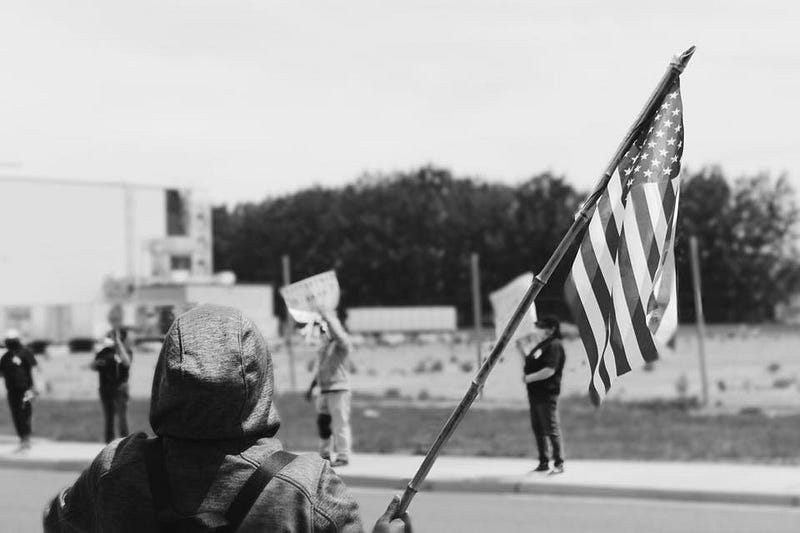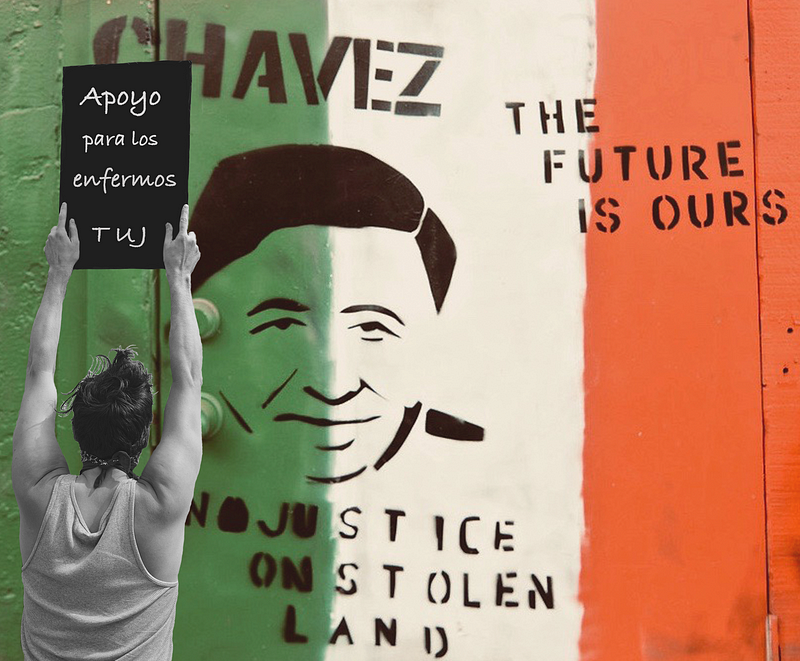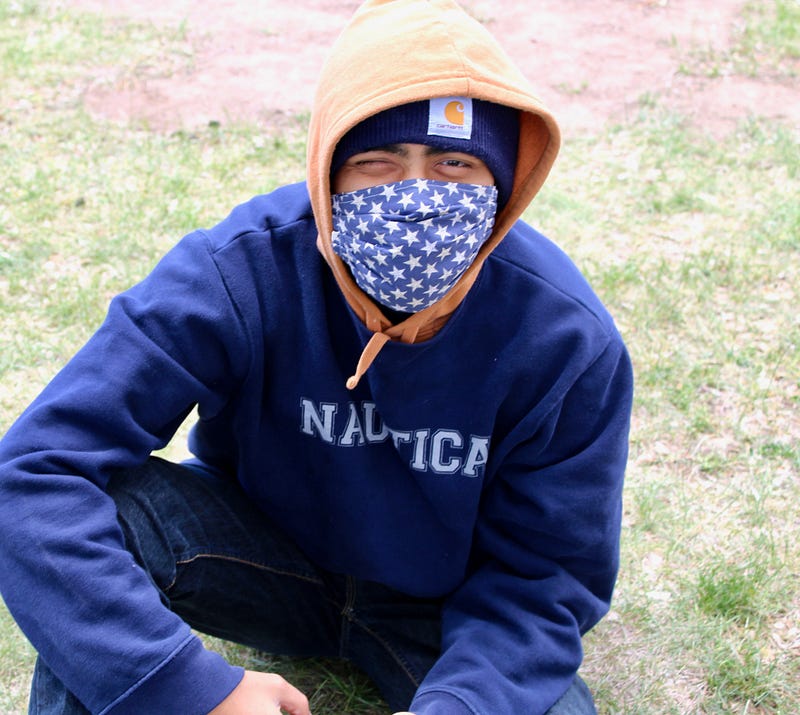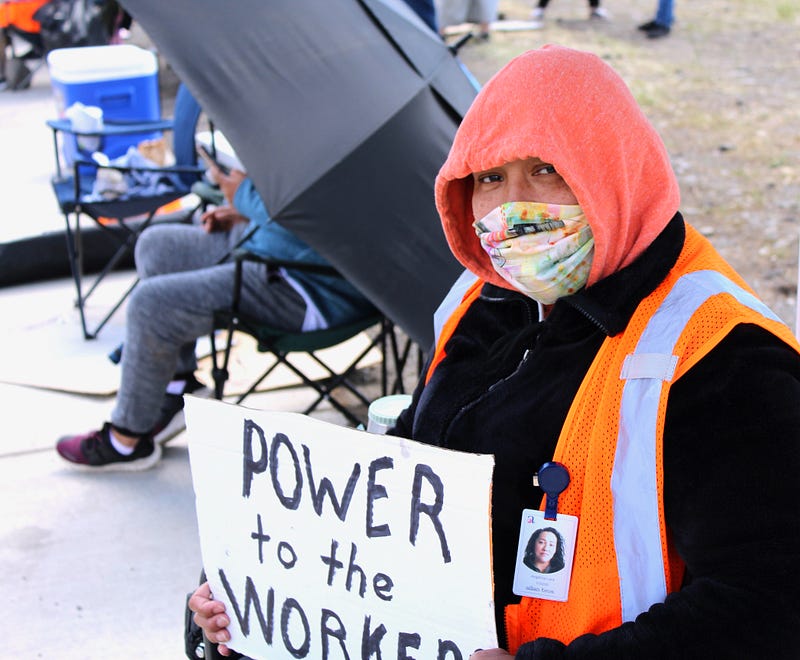A Year After the Strikes

How mass walkouts re-kindled the labor movement in the Yakima Valley.
Story by Silvia Leija
On April 6, 1986, Mexican American labor leader and civil rights activist Cesar Chavez spoke to over 2,000 farmworkers at Miller Park in Yakima, Wash., urging them to demand better health care and working conditions. This was part of a larger labor movement, led by the United Farm Workers union, that was sweeping the West Coast, as Filipino and Mexican agricultural laborers joined strikes for better treatment.
Thirty-five years years later, the labor movement in the Yakima Valley was rekindled in May 2020 through a series of strikes stemming from the COVID-19 pandemic.
On May 7, 2020, a group of workers left Allan Bros., a Naches-based fruit packing company. This walkout inspired several other Yakima Valley packing warehouses to follow suit.
The strikes lasted a little over a month and resulted in several agreements between companies and workers. Companies promised bonuses, raises and better COVID-19 protections, as well as the creation of the first agricultural union in the area, Trabajadores Unidos por La Justicia (TUJ).
A year later, with COVID-19 restrictions being lifted and workers facing extreme weather conditions such as the looming fire season, TUJ is considering its next steps to ensure the safety of the workers they have sworn to protect.

A Labor Movement is Reborn
On May 7, 2020, 49-year-old Angelina Lara received a positive result on a COVID-19 test taken four days prior. By then, the more critical symptoms of a sore throat and breathing difficulties had decreased to a muscle ache. Lara said it felt as if someone had beaten her up.
That same day, Lara received a call from a co-worker at Allan Bros.: It was going to be a different sort of workday.
Lara was one of more than 50 Allan Bros. employees that walked out early that morning in response to the company’s inaction to the COVID-19 pandemic.
“We didn’t have the proper protection,” Lara explained. “We didn’t have the proper equipment to keep us safe from getting COVID-19. We didn’t follow the six feet distance, didn’t receive hazard pay, we had nothing. We weren’t even being provided with face masks, because that was something that wasn’t a requirement at the time.”
After warning her co-workers about her positive result and ensuring that she stayed far from the rest of the crowd, Lara joined the ranks of workers demanding better for themselves and their families.
Among the demands, workers asked for more masks, gloves, disinfectant, plastic dividers to separate workers on the production line, and hazard pay. Workers also asked their employers to inform them who tested positive so they could know if they had been exposed.
As more strikers joined the lines at Allan Bros., other workers across the Yakima Valley took note.
Workers from companies such as Monson Fruit, Matson, Hansen, Columbia Reach, Roche Fruit, Brandt and Sons and Jack Frost also walked out in the days following the initial Allan Bros. strike.

Victor Hernandez, 23, worked at Jack Frost and was among the 400 strikers across the valley. At first Hernandez didn’t think the strikes would last long, and was surprised when he and his co-workers were protesting for more than two weeks.
“Seeing how many people actually cared about the strikes is what inspired me to walk out,” Hernandez said. “When people started organizing, they started with like, two or three people, but then that same morning, the whole warehouse got together and decided to walk out.”
“I was like, ‘OK, we’re going to do this as one,’” Hernandez said.
A Community Comes Together
Workers weren’t the only ones out during the weeks of protests.
Much like Lara, Noemi Sanchez, 25, received a call from a friend. The friend told her Allan Bros. workers had walked out of the warehouse and were sitting outside in the park across the street from the cinder-block style building. Sanchez, an activist since high school, quickly organized herself and began buying much needed supplies for the workers sitting in the late spring sun.
“Someone said, ‘Hey, we need water, it’s hot,’” Sanchez said. “So I took an ice chest full of water. Then they told me they needed food so I went and bought tamales.”
Sanchez felt excited and scared for the workers when she began joining them out on the picket line.
“We haven’t had large strikes happening in the Valley since Cesar Chavez was here,” Sanchez said. “So it was really energizing. But at the same time I was scared. When workers try to stand up for their rights, we have seen historically that they get fired or they get threatened.”
The fear of threats was justified. According to Lara, the sheriff’s department confronted the Allan Bros. workers multiple times. The park where the strikers first began their walkout was later closed despite it being public property, and workers were no longer allowed to park or meet there. After that, organizers spoke to a nearby school, and were allowed to use the parking lot while school wasn’t in session. Police showed up to ensure that workers weren’t using the facilities, said Lara.
On May 14, 2020, striking Allan Bros. workers were standing along the side of the road across the street from the company’s warehouse when a man, later identified by police as 58-year-old Stacey Sedge, stopped on the road and yelled, “I am going to get my 50-caliber gun and come back and shoot you all!”
According to court documents, Yakima County Sheriff’s Office deputies were called to the property and were there when Sedge returned. He admitted to driving through the area and making the threat but told deputies he hadn’t meant it, and that he didn’t have any guns. Sedge was arrested and reportedly was charged with felony harassment and malicious harassment.
Despite the danger and pushback, the strikers saw a lot of community support.
“There was never a day where workers were out there by themselves,” Sanchez said. “Community showed up every single day. And there weren’t just people from the area. People from Bellingham and Skagit County came down to support the workers, even if it was just for a day.”
The community that drove down from the Skagit area was spearheaded by Familias Unidas por La Justicia, an independent farmworker union based in Burlington, and Community to Community Development, a Bellingham-based ecofeminist organization dedicated to immigrant and farm labor advocacy.
These two organizations were instrumental in assisting the workers at Allan Bros. and every other warehouse with their demands, messaging and signage. With their guidance and support, Allan Bros. workers organized the first agricultural union in the Yakima Valley.
Workers United for Justice
A month after the picket line, the owners of the Allan Bros. warehouse and a committee of its striking employees finally came to an agreement. The committee, which would later turn into Trabajadores Unidos por la Justicia — Workers United for Justice in English — accepted the company’s offer of a $1 hourly wage increase as well as mandatory masks and better protection within the warehouse.
“We are sure that we will achieve all our demands, because we will return with strength to the negotiating table then,” Agustin Lopez, then-president of TUJ and Allan Bros. striker, told a Labor Notes reporter.
Now, after a year of negotiations and a lawsuit against Allan Bros. for unfair labor practices and interfering with the union’s organizing efforts, Trabajadores Unidos por La Justicia is focusing on meaningfully engaging with the community.
“The only thing that we can do is show the community that we are here for them,” Angelina Lara, now a member of TUJ, said. “We are doing events and have had a couple of vaccine clinics. So that was a good way of having a community to get to know TUJ and see what we’re all about.”

Lara believes that will be especially important as the Yakima Valley faces historic heatwaves and fire seasons. TUJ has been working to provide as much information as possible about the rights of the employees working in such conditions.
Lara described this new era of workers’ movement as a women’s movement.
“In these warehouses, we have more women than men and many of them come from places where they’re supposed to be quiet and a little more conservative,” Lara said. “For them to speak their mind, to speak their voice, is hard. It’s a big step.”
It was a big step for the Yakima Valley as well, according to Lara.
“Yakima woke up and we are trying our best and working our best for it not to go back to sleep,” Lara said. “We are trying to be out there so workers know they have a voice through us. And we want to inspire them as well, to voice their opinions and whatever they need.”